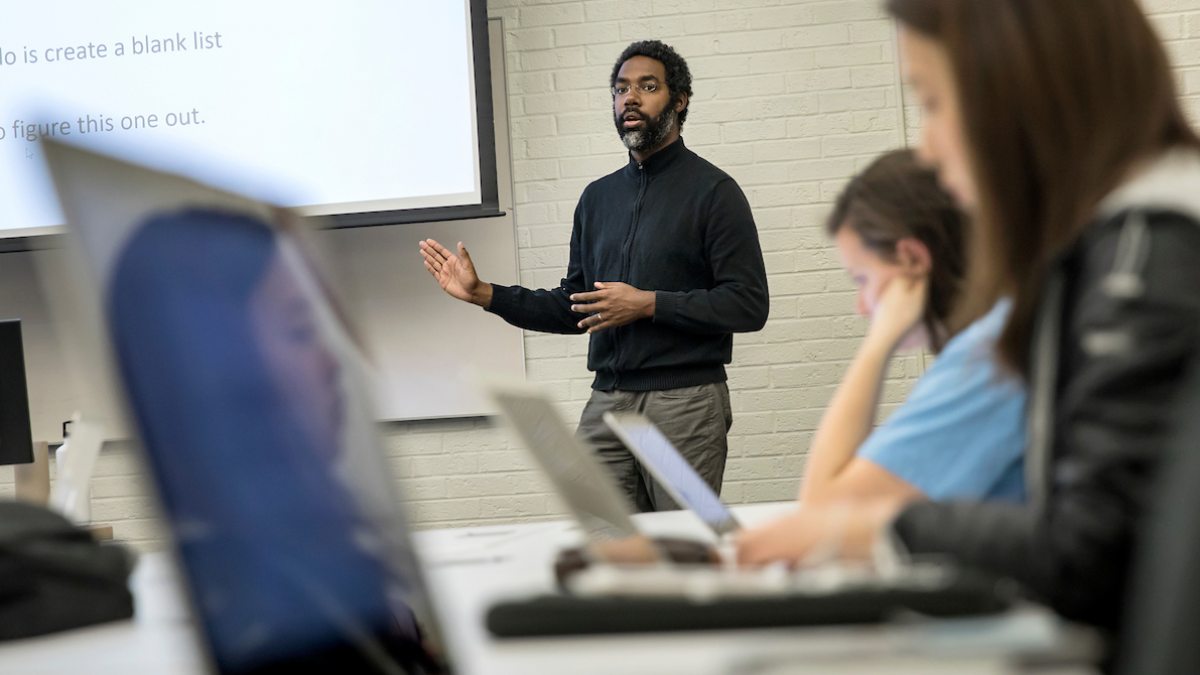Understanding digital media influence
From social media’s influence on the Arab Spring to the ways Black Lives Matter activists made waves online, Deen Freelon’s research offers a window into the contemporary world.

If you spend any time on the internet, Deen Freelon’s research is relevant to you.
Freelon, an associate professor in the School of Media and Journalism, is interested in how digital media influences our political opinions, as well as how we express those opinions online.
From social media’s influence on the Arab Spring to the ways Black Lives Matter activists made waves online, Freelon’s work offers a window into the contemporary world. We asked him a few questions about his research and the guidance he provides to civically-minded people who engage with others online.
What does your research focus on?
Right now, I am mostly interested in citizen-citizen political conversations (horizontal) and citizen-journalist conversations (vertical) as they play out online. I study these using computational methods, which means I write code that preprocesses and analyzes very large datasets including social media posts and news articles. Part of my research focuses on creating and promoting tools to do computational analysis, which is still in its infancy in my field.
How does your work tie into the larger mission of the School of Media and Journalism?
I study public conversations, which are a key part of our mission statement. Communication and democracy lie at the heart of my work — in particular, I am concerned with how the former helps or hinders the latter.
What should we know about the relationship between politics and technology?
Many things, including that technology is neither all-powerful nor irrelevant in the political sphere. Rather, social and political effects emerge from the interplay of human intention, chance, and technology, and at different times these will all be more and less consequential.
What advice would you give to civically-minded people who want to avoid misinformation online?
I have two pieces of advice:
- Make sure the media you consume don’t feed you a steady diet of what you already believe. Your information diet should include at least some contrary facts and views you do not embrace.
- At the same time, be aware that some ideas do not deserve to be treated as valid (e.g., racism, sexism, Flat-Earthism, etc.), and allocate your attention and good faith accordingly.
Can you give us a few interesting facts about the ways people express political opinions on social media?
About 68% of American adults use Facebook regularly, but only 9% of US adults self-report their political ideologies on the platform (liberal vs. conservative). Even if the number of people who talk about politics is much higher than this, it is still likely a small proportion of the total conversation.
On Twitter, the center-right has hollowed out since Trump’s election (we’re not sure whether they’re staying quiet or whether they’ve changed positions). The two most active ideological segments on the platform are the center-left and the far-right.
Also on Twitter, people are much more likely to insult than praise media outlets. And not all insults cross ideological lines: a report I co-authored last year of left-leaning Twitter subcultures found that CNN was the most-insulted outlet of all those we studied.




